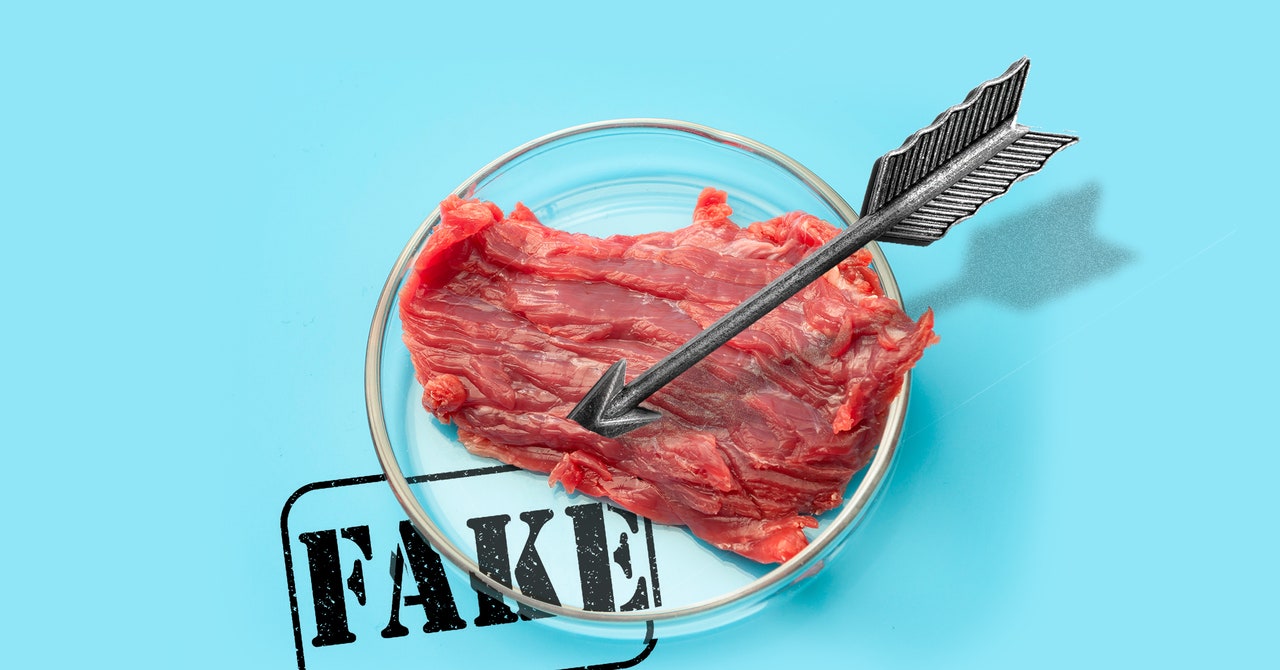Around 46 million Americans live in states that have introduced bills to ban cultivated meat, the latest escalation in a surprising culture war.
Unless Florida governor Ron DeSantis has an unexpected change of heart, it will soon be a crime to sell or make cultivated meat in the Sunshine State. A bill passed by the Florida House and Senate is now awaiting the signature of DeSantis, who has already indicated his opposition to what he calls “fake meat.” If he does sign the bill into law, anyone who sells, makes, or distributes cultivated meat in Florida may be subject to a fine of up to $500 and 60 days in prison.
“Beating somebody up and selling cultivated meat are the same in the eyes of the law in Florida,” says Justin Kolbeck, CEO of cultivated seafood startup Wildtype, who has been trying to persuade legislators to ease up on a number of proposed bans. As well as the Florida bill, there is also proposed legislation to ban cultivated meat in Alabama, Arizona, Kentucky, and Tennessee. If all of those bills pass—an admittedly unlikely prospect—then some 46 million Americans will be cut off from accessing a form of meat that many hope will be significantly kinder to the planet and animals.
The wave of proposed legislation, including very strict labeling laws, may come as a surprise given that cultivated meat isn’t on sale anywhere in the US at the moment. Floridians were already very unlikely to get their hands on a cultivated chicken cutlet, but the proposed ban shuts off that option altogether. “It is really significant. And to prohibit a food before it’s on the market for that whole population, before they’ve had a chance to try it and see if they want to buy it, feels absurd,” says Jessica Almy, senior vice president of policy at the Good Food Institute, a nonprofit that lobbies for alternatives to animal protein.



Someone’s been out of the news coverage for a while.